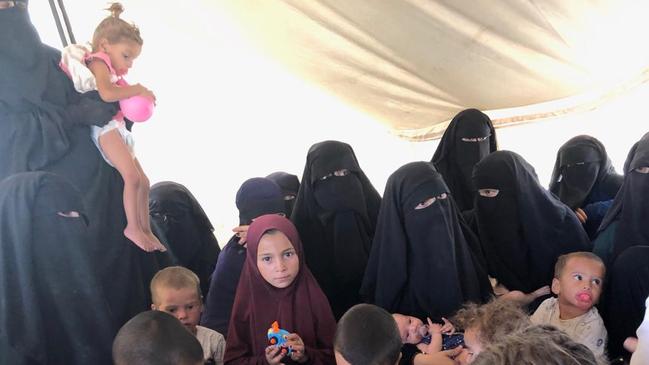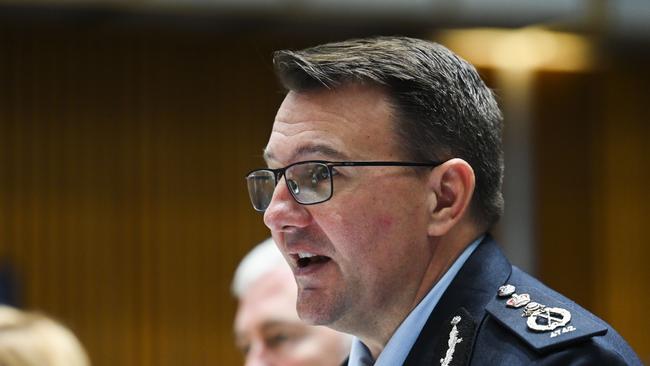AFP faces grilling over ISIS brides in senate estimates
The women who returned to Australia after marrying ISIS fighters are under ongoing investigation, federal police have revealed.
The four “ISIS brides” repatriated to Australia alongside their children could be subjected to control orders, with the matter under investigation.
The Australian Federal Police Commissioner Reece Kershaw told senate estimates there was also an active investigation into whether the women had breached Australian laws.
The first cohort of Australian citizens from Syria arrived in Sydney late last month after years spent in internally displaced people camps following the 2019 fall of Islamic State.
Their husbands have either been jailed or killed while fighting overseas.

The first cohort have been settled in Sydney, with more women to follow and be spread across NSW and Victoria.
In a statement following their return, the initial four women said they would “fully co-operate” with all Australian law enforcement agencies “to ensure the safety of our families and the community”.
Mr Kershaw said the women already here, and those yet to come, would continue to be assessed by the AFP and control orders could be placed on them at any time.
“I have confidence in the well-established framework that enables the AFP to respond and manage extremist threats in Australia, including our community liaison teams, which will work with community leaders to support these returned individuals,” he said.

Liberal senator Paul Scarr put questions to the AFP about the force’s involvement in the lead-up to the repatriation.
Mr Kershaw took on notice the timing in which his officers provided advice to the government.
Earlier, senator Jacqui Lambie told 2GB that she felt for the children caught up in the “mess”.
“Some of those women were taken over there at a very young age … and they were pretty much dragged over there,” she said.
“My heart is with their kids, which are obviously bloody Australian. And I’ve been in those camps, and they are absolutely atrocious.
“But I can tell you, we’re going to have to watch them very, very closely. If that means we have to put an ankle bracelet on them … We’re going to have to watch them 24/7.”


